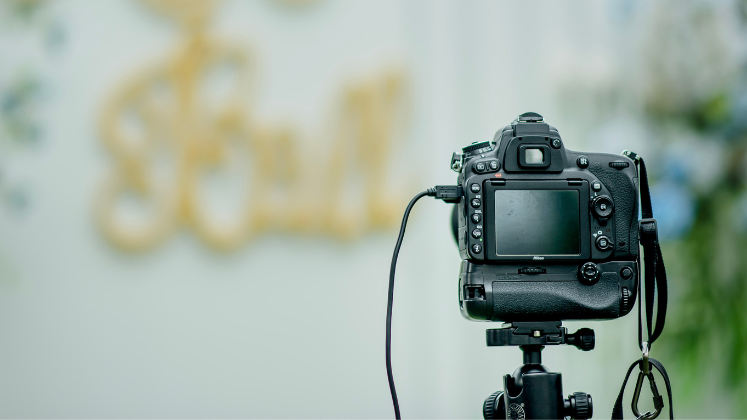 Systems of oppression operate throughout academia. For marginalized scholars, bias and systemic barriers are compounded by self-doubt and imposter syndrome. Eric Grollman argues that by daring to speak up and promote work, marginalized scholars can contribute to disrupting this systemic exclusion. Drawing on Audre Lorde, Grollman underlines that silence has never, and will never, protect us.
Systems of oppression operate throughout academia. For marginalized scholars, bias and systemic barriers are compounded by self-doubt and imposter syndrome. Eric Grollman argues that by daring to speak up and promote work, marginalized scholars can contribute to disrupting this systemic exclusion. Drawing on Audre Lorde, Grollman underlines that silence has never, and will never, protect us.
This post is not about “leaning in.” Or, maybe it is. I haven’t read Sheryl Sandberg’s book yet. But, I have skimmed some critiques of her work, namely that asking women to “lean in” more to advance within sexist institutions does too little to change those institutions. And, when women lean in, they may be smacked in the face (literally and/or figuratively). But, this post isn’t about “leaning in,” I think.
Self-promotion is on my mind again. A year ago or so, to my surprise today, I shared the following wisdom on Twitter:
Self-promotion is just as much promotion of my communities as promotion of myself.
Unfortunately, this gem along with other possible gems I’ve shared on Twitter were lost to subsequent self-doubt. I buckled under the nasty criticism of anonymous trolls who, at the time, seemed to read and critique my every tweet and blog post. I let cowardly colleagues bully me into silence, temporarily at least. In the process of recovering my voice, I have had to face the reality that speaking out (or not) is just as much about me as it is the communities to which I belong.
Impostor Syndrome: A Symptom Of Oppression
I will grant that self-doubt is not unique to scholars from oppressed communities. But, that is where the commonalities with our privileged colleagues end. For working-class scholars, scholars of color, women scholars, LGBTQ scholars, scholars with disabilities, immigrant and international scholars, and fat scholars, our personal bouts with impostor syndrome — feeling as though we do not belong and/or are not as good as our privileged colleagues — are a symptom of systems of oppression that operate through academia, just as they do through every other important social institution. We cannot help but feel as though we do not belong because academia was not built by us or for us. We had to fight to be let in the front door (and still do), and continue to fight to be included fully; when we do get in, subtle and explicit efforts are made to undermine us at every corner.
 Image credit: aaron gilson (Flickr CC BY-NC-SA)
Image credit: aaron gilson (Flickr CC BY-NC-SA)
I encourage my fellow marginalized scholars to make this realization a crucial part of their professional consciousnesses. I imagine that there are countless scholars who suffer(ed) from impostor syndrome all throughout their careers because more and more experience is not enough, more publications are not enough, tenure and promotion are not enough, and so on… to eradicate institutionalized bias against marginalized people. It is not that we are more likely to experience self-doubt than our privileged counterparts because we are not as experienced or productive as they are. We doubt ourselves because academia, and society in general, doubts us. Effective treatments for impostor syndrome, then, must entail raising one’s consciousness and, ideally, changing institutional norms and policies.
I cannot speak to any overlap with Sandberg’s “lean in” philosophy. But, I know for certain that my new found consciousness, including linking the promotion of my own work with the promotion of my communities, has been inspired by the good Lorde —Audre Lorde, that is. Nearly on a daily basis, I am reminded of the undeniable truth that silence has never, and will never, protect me. Further, “[w]hen we speak, we are afraid our words will not be heard or welcomed. But when we are silent, we are still afraid. So it is better to speak.” And, “[w]hen I dare to be powerful, to use my strength in the service of my vision, then it becomes less and less important whether I am afraid.” By self-promoting and speaking out, I am advancing my communities; thus, with so much more at stake than my personal well-being, my temporary discomfort is unimportant. (This is a point I attempted to make on U Maryland’s Parren Mitchell Symposium panel on intellectual activism [see 00:56:30].)
Self-Promotion And Community-Promotion
Beyond recognizing self-doubt, I sometimes force myself to accept invitations (if my schedule allows) as a harsh means to overcome it. For example, in March, I served on a public sociology panel at the Southern Sociological Society annual meeting alongside Drs. Barbara Risman (current SSS president), Philip Cohen, and Neal Caren. I was the lone tenure-track professor, liberal arts faculty member, and the only queer person and person of color. The sole reason I accepted the invitation was that I forced myself to do it, ignoring the internal voice that pointed out that these are successful and visible experts while I just finished Year 2 on the tenure-track.
Why push myself even in the face of intense self-doubt? There are several reasons. I push myself because the impostor syndrome that I experience is the same symptom of oppression that my fellow marginalized scholars experience. I push myself because every time I decline an invitation, there is a good chance another person like me may not be invited in my place or also will not accept the invitation; when this occurs repeatedly, we are complicit in the systematic exclusion of the voices of marginalized scholars. I push myself because I cannot afford to turn down the few opportunities that come my way in light of the infinite opportunities that are denied to me because of my identities and politics. I push myself because this job will never be easy; academia is a difficult profession by design, and can be deadly for marginalized scholars.

When marginalized scholars self-promote and speak out, we make space for other marginalized scholars, or at least inspire bravery in others. I simply cannot imagine where I would be if W. E. B. Du Bois, Audre Lorde, Patricia Hill Collins, and the editors of Presumed Incompetent had not dared to speak out and promote their own work and perspectives! I doubt sexualities would be the theme of the upcoming annual meeting of the American Sociological Association (ASA) if sexuality scholars (including ASA President Paula England) were too afraid to promote their work as a legitimate and important area of study. Each time I promote my work and voice, I hope that I, too, am having the same positive influence on others.
Allowing forcing ourselves to be heard and visible in academic spaces benefits our privileged colleagues, as well. By daring to promote our work and to speak up, we contribute to disrupting our own systemic exclusion. We challenge the perspective and scholarship of white heterosexual middle-class “normal weight” cis men without disabilities as the default or standard. We force our colleagues to take us seriously and see the importance of our work and our perspectives. Hopefully, we also influence our privileged colleagues to prioritize our voices when citing scholarship, choosing panels and committees, and assigning readings in their courses. To put it bluntly, the exclusion and invisibility of unique perspectives is bad for science and bad for higher education; in this way, we all benefit from diversity and full inclusion.
Concluding Thoughts
Tasking individual marginalized scholars with self-promoting to help advance their own communities is burdensome, I realize. If you’re already feeling self-doubt, and the twinge of guilt for turning requests down, and the stress of being overburdened with service demands, knowing that you are either advancing your communities or letting them down is simply more pressure. But, thinking of the positive flip side — that the promotion of your scholarship and perspective helps to promote your communities — may help to alleviate the self-doubt.
The reality is, it often is so much more than you. When you are excluded, it is because most or all of the members of your communities are excluded. When scholars who dare to speak up are attacked, they are simply targets for a larger assault on liberalism, higher education, anti-racism, feminism, and other causes that promote equal rights and/or social justice. The self-doubt is, at least in part, an internalization of the bias against marginalized scholars in academia and society generally. We ease the work of defenders of the status quo in academia when we are complicit in our own silence, invisibility, and exclusion.
We owe it to ourselves and our communities to be heard, and seen, and cited, and promoted, and included, and engaged.
This piece originally appeared on Conditionally Accepted and is reposted with the author’s permission.
Note: This article gives the views of the author, and not the position of the Impact of Social Science blog, nor of the London School of Economics. Please review our Comments Policy if you have any concerns on posting a comment below.
Eric Anthony Grollman (@grollman) is an Assistant Professor of Sociology at the University of Richmond in Virginia, USA. His research examines the impact that prejudice, discrimination, and violence have on the health and well-being of marginalized populations, particularly those who are disadvantaged by more than one system of oppression. He maintains a blog, ConditionallyAccepted.com (@conditionaccept), for scholars on the margins of academia.







I am Dutch, but live in Germany since a few years. What surprised me was that many Germans still felt guilty about the Second World War. Even people who were born well after the war ended. This was something I just could not understand.
It may be similar to the self-doubt of marginalized scholars. If many people treat you as if you are responsible for the war, it is hard not to internalize it (partially). Even if it makes no sense whatsoever. We are a social species and social clues from our peers have a strong (sometimes unconscious) impact.